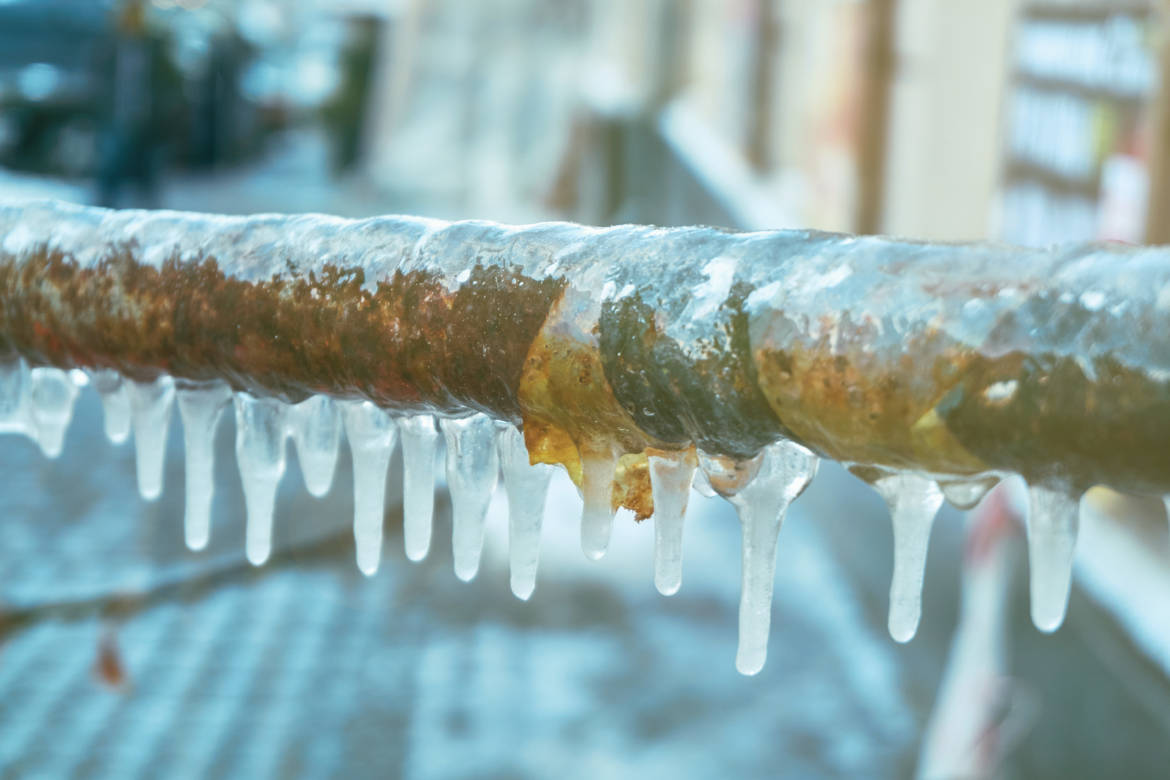Ways to Avoid Frozen Plumbing in Winter: Professional Guidance
Ways to Avoid Frozen Plumbing in Winter: Professional Guidance
Blog Article
They are making several good observations regarding How To Avoid Freezing Pipes in general in this post in the next paragraphs.

Cold weather can ruin your plumbing, particularly by freezing pipes. Here's exactly how to stop it from taking place and what to do if it does.
Intro
As temperatures decrease, the threat of icy pipes boosts, potentially leading to costly repairs and water damage. Comprehending just how to prevent frozen pipes is crucial for home owners in chilly climates.
Avoidance Tips
Shielding susceptible pipes
Cover pipelines in insulation sleeves or make use of warmth tape to protect them from freezing temperatures. Focus on pipelines in unheated or external areas of the home.
Heating methods
Maintain indoor areas effectively heated, especially locations with pipes. Open up cabinet doors to enable warm air to flow around pipes under sinks.
How to recognize icy pipes
Seek lowered water flow from faucets, unusual odors or noises from pipelines, and noticeable frost on revealed pipes.
Long-Term Solutions
Architectural changes
Consider rerouting pipes far from exterior wall surfaces or unheated locations. Include added insulation to attics, basements, and crawl spaces.
Updating insulation
Invest in high-grade insulation for pipelines, attics, and wall surfaces. Appropriate insulation aids preserve consistent temperature levels and decreases the threat of icy pipes.
Shielding Exterior Plumbing
Yard hoses and exterior faucets
Detach and drain pipes garden hose pipes before winter months. Mount frost-proof spigots or cover outdoor faucets with protected caps.
Recognizing Frozen Pipes
What creates pipelines to freeze?
Pipes freeze when subjected to temperatures below 32 ° F (0 ° C) for prolonged periods. As water inside the pipelines freezes, it broadens, putting pressure on the pipe walls and potentially creating them to rupture.
Threats and problems
Icy pipelines can lead to water supply disruptions, residential property damages, and pricey repair work. Ruptured pipelines can flood homes and create substantial architectural damage.
Indications of Frozen Water Lines
Recognizing frozen pipes early can avoid them from bursting.
What to Do If Your Pipes Freeze
Immediate activities to take
If you suspect icy pipes, keep faucets open to alleviate stress as the ice thaws. Use a hairdryer or towels soaked in hot water to thaw pipelines slowly.
Verdict
Avoiding icy pipelines requires aggressive measures and quick actions. By comprehending the reasons, indicators, and safety nets, homeowners can protect their pipes throughout cold weather.
6 Proven Ways to Prevent Frozen Pipes and Protect Your Home
Disconnect and Drain Garden Hoses
Before winter arrives, start by disconnecting your garden hoses and draining any remaining water. Close the shut-off valves that supply outdoor hose bibs and leave the outdoor faucet open to allow any residual water to drain. For extra protection, consider using faucet covers throughout the colder months. It’s also important to drain water from any sprinkler supply lines following the manufacturer’s directions.
Insulate Exposed Pipes
Insulating your pipes is an effective way to prevent freezing. Pipe insulation is readily available at home improvement stores and is relatively inexpensive. Pay close attention to pipes in unheated areas such as the attic, basement, crawl spaces, or garage. Apply foam insulation generously to create a buffer against the cold. You can also wrap your pipes in heat tape or thermostat-controlled heat cables for added warmth.
Seal Air Leaks
Inspect your home for any cracks or openings that could let in cold air. Seal any holes around the piping in interior or exterior walls, as well as the sill plates where your home rests on its foundation. Additionally, make sure to keep your garage door closed unless you’re entering or exiting. Leaving it open creates a significant air leak that can lead to frozen pipes.
Allow Warm Air Circulation
During cold snaps, it’s essential to allow warm air to circulate evenly throughout your home. Leave interior doors ajar to promote better airflow. Open kitchen and bathroom cabinets to help distribute heat consistently around the rooms. If you have small children or pets, be sure to remove any household chemicals or potentially harmful cleaners from open cabinets for safety.
Let Faucets Drip
A small trickle of water can make a big difference in preventing ice formation inside your pipes. When temperatures drop significantly, start a drip of water from all faucets served by exposed pipes. This continuous flow helps prevent the water from freezing. Additionally, running a few faucets slightly can relieve pressure inside the pipes, reducing the chances of a rupture if the water inside does freeze.
https://choateshvac.com/6-proven-ways-to-prevent-frozen-pipes-and-protect-your-home/

I was shown that article about How to Prevent Your Pipes From Freezing through a buddy on our other site. For those who enjoyed our blog post plz make sure you remember to pass it around. Thank-you for going through it.
Call Today Report this page